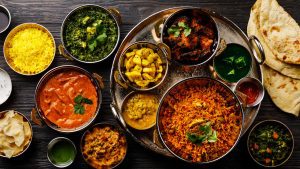Exploring new cuisines is one of the joys of traveling abroad, but it’s essential to be mindful of what you eat to avoid any unpleasant surprises. Different countries have diverse culinary traditions, and while most dishes are delicious and safe, some may not agree with everyone’s stomachs. Here’s a guide to help you navigate through unfamiliar foods and know what to avoid when traveling abroad.
- Street Food from Unsanitary Stalls: While street food can be tempting, especially in bustling markets and vibrant neighborhoods, it’s crucial to assess the cleanliness of the stall and the hygiene practices of the vendor. Eating from unhygienic stalls can increase the risk of foodborne illnesses.
- Undercooked or Raw Meat and Seafood: In some cultures, dishes like steak tartare or sushi are delicacies, but consuming undercooked or raw meat and seafood can expose you to bacteria and parasites. Ensure that meat and seafood are thoroughly cooked to avoid food poisoning.
- Unpasteurized Dairy Products: Although cheese, milk, and yogurt are staples in many cuisines, opt for pasteurized dairy products to reduce the risk of bacterial contamination. Unpasteurized dairy can harbor harmful pathogens, leading to digestive issues.
- Tap Water: In several countries, tap water may not be safe for consumption due to contamination with bacteria, viruses, or parasites. Stick to bottled water or beverages made with boiled water to stay hydrated and avoid waterborne diseases.
- Ice Cubes: While it’s tempting to cool off with ice-cold drinks, be cautious of ice cubes made from tap water, which may carry the same risks as untreated water. Choose drinks without ice or ensure that ice cubes are made from purified water.
- Exotic or Unfamiliar Fruits and Vegetables: Sampling exotic fruits and vegetables is an exciting part of experiencing new cultures, but be wary of consuming those that are unwashed or unpeeled. Opt for fruits and vegetables that can be peeled or washed thoroughly with clean water.
- Shellfish: Shellfish, such as clams, mussels, and oysters, are delicious delicacies, but they can be contaminated with toxins, particularly in warm waters. Enjoy shellfish from reputable restaurants with proper hygiene standards to minimize the risk of food poisoning.
- Buffets: Buffets are popular in many hotels and restaurants worldwide, but they can pose risks if food is not handled and stored properly. Avoid dishes that have been sitting out at room temperature for an extended period and opt for freshly prepared items.
- Food from Unlicensed Vendors: While local food markets and festivals offer a glimpse into a region’s culinary heritage, be cautious when purchasing food from unlicensed vendors. Stick to established eateries with good reviews to ensure food safety.
- Spicy Foods: Spicy dishes are a hallmark of many cuisines, but if you’re not accustomed to heat, be cautious when trying overly spicy foods. Consuming excessively spicy meals can upset your stomach and lead to discomfort during your travels.
Exploring the culinary landscape of a foreign country is an adventure in itself, but it’s essential to prioritize food safety to avoid any health-related setbacks during your trip. By being mindful of what you eat, opting for freshly prepared dishes from reputable establishments, and staying hydrated with safe beverages, you can savor the flavors of your destination without compromising your well-being. Bon appétit and safe travels!

